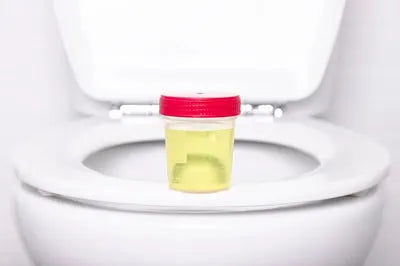Can Kidney Problems Lead to Incontinence?
If you are struggling with incontinence, you might have a lot of questions such as, “can kidney failure cause bowel incontinence?” Or “can kidney stones cause incontinence?” If yes, then what are the symptoms of kidney problem? And the list goes on.
Don’t panic and don’t worry at all! We provide all the answers here and all we ask of you is just to keep reading!
Our body’s urinary system helps remove waste products from our body and maintain the body’s fluid levels. The urinary system mainly comprises of the kidneys, ureters, urinary bladder and urethra. The main function of the kidneys is to filter the waste and extra fluid from the blood, thereby regulating the chemical balance of our body. The urine flows from the kidneys through the ureters into the urinary bladder. When the bladder gets full, the urge to urinate is a signal to empty the bladder. However, in this entire process, even if one of the organs is unable to perform its function well, the person starts experiencing difficulties with urination. This gives rise to bladder control problem or also known as urinary incontinence.
Bladder Problems – Why and What?
Urinary incontinence is the inability to control the release of urine, often resulting in the passing out of urine even before one reaches the bathroom. Although urinary incontinence can affect younger people, it is usually associated with the elderly. This is because as one ages, the muscles and the organs of the reproductive and renal system start ageing too, which in turn affects the proper functioning of the kidneys and urinary bladder. This leads to a kidney problem wherein, the nephrons in the kidneys that filter waste material from our blood start deteriorating and blood vessels that supply blood to the kidneys start to harden. The elastic tissue of the urinary bladder weakens and the bladder is unable to hold urine for longer intervals.
Kidney Disease and Incontinence
Sometimes, there is a blockage in a part of the urinary tract, in the form of a bladder stone, a stone or a tumor in the kidneys. This obstructs the flow of urine, making the passing of urine very difficult. This can lead to kidney disease incontinence and unexpected urine leakage, especially during the night. The flow and amount of urine may differ for each person, depending on their age, illness, medication they are on, and other medical conditions like diabetes. One of the best ways to manage night time incontinence is by buying and using adult diapers made for senior citizens. These leak-proof diapers for adults help in absorbing the flow for longer hours, ensuring that the elderly get adequate rest at night.
Look out for the following kidney problem symptoms if you think you might be experiencing a bladder control problem:
-
Leaking urine while coughing, sneezing, laughing, lifting heavy objects, etc.
-
Being unable to control the urge to urinate
-
Feeling a strong urge to urinate at frequent intervals of time
-
Leaking urine without any warning or urge
Managing Dialysis
With time, repeated instances of bladder control issues and urinary tract infections can lead to chronic kidney disease. This is when patients have to undergo dialysis. Dialysis is a type of treatment that uses a special machine to take out the body’s waste, salt and extra water. When a person’s own kidneys can no longer carry out their functions, dialysis is performed to extract waste and maintain a safe level of chemicals in the blood like potassium, sodium and bicarbonate. Since dialysis takes on the kidney’s main role, the daily urine output of the patient reduces. A dialysis patient produces very little urine, needing to empty their bladder only once or twice a day after dialysis. This is because the blood gets filtered and fluids get removed during the process, thus reducing incontinence in patients.
How to Manage Incontinence with Kidney Problem?
Although dialysis does provide support to the bladder by reducing the number of times an incontinence patient has to pass urine, it so happens that some patients still need to go to the bathroom a few times during the day to manage their fluid balance. Even after the process of dialysis is done or after discontinuing dialysis, chronic kidney disease or other kidney problems cannot be cured or prevented. However, urinary incontinence can be managed by using leak proof diapers for adults.
Leak proof Diapers for Adults – An Easy Solution
Patients with kidney and bladder problems can wear adult diapers made especially for senior citizens. These hypoallergenic diapers are designed to absorb the flow without causing any discomfort to the wearer. Adult diapers are available in different sizes and types as per the needs of each patient. Buying adult diapers has become quite easy, as they are available online as well as in most pharmacies. Senior citizens who lose bladder control with age can be relieved by the use of adult diapers as they do not have to be under constant stress of wetting the bed by and soiling their clothes should they fail to make it to the bathroom. While urinary incontinence is taken care of with leak proof diapers for adults, the elderly can focus on their diet, exercise, treatment and social life, thereby healing and helping themselves by taking good care of their bodies
As one grows older, it gets increasingly difficult to keep all the organs in good shape. It is advisable to take proper care of oneself and ensure periodic visits to a doctor for physical check-ups. With obstructions in the way of proper functioning of the kidneys in old age, it takes some time to adjust to dialysis treatments that removes the extra wastes and fluids. While this may reduce the frequent urination, it is better to buy premium quality adult diapers that will help manage urine leakage at ease without the fear of stains, especially at night.
















